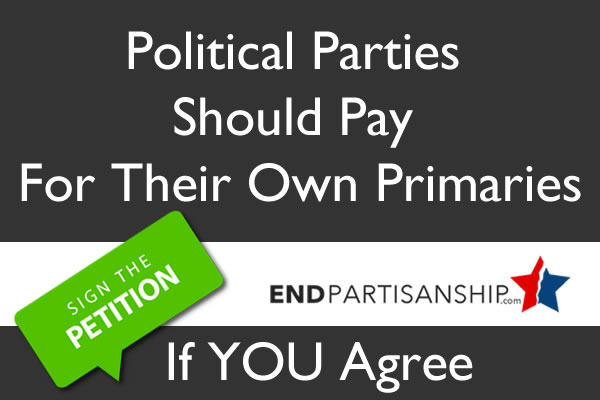Independent Pennsylvanians Fight for Nonpartisan Primary, Ballot Access

A group of Pennsylvanian citizens, known as the Independent Pennsylvanians, have been working for the past 15 years towards changing undemocratic and archaic state laws which grossly favor the Democratic and Republican parties over third party and independent candidates.
Affiliated with the Committee for a Unified Independent Party, a New York City-based nonprofit, non-ideological think tank representing the independent political movement, Independent Pennsylvanians is currently focused on two major issues which hinder fair and democratic elections in Pennsylvania: closed primaries and ballot access laws.
Under current ballot access laws, which determine which candidates are eligible to appear on the ballot, “third party and independent candidates are required to collect nearly 20,000 signatures to appear on the ballot, while Republican and Democratic candidates are only required to collect between 1,000 and 2,000 signatures,” said Jennifer Bullock, founder of Independent Pennsylvanians.
ballot access laws, which determine which candidates are eligible to appear on the ballot, “third party and independent candidates are required to collect nearly 20,000 signatures to appear on the ballot, while Republican and Democratic candidates are only required to collect between 1,000 and 2,000 signatures,” said Jennifer Bullock, founder of Independent Pennsylvanians.
One of the most common arguments for maintaining the strict ballot access laws is that lowering ballot access requirements could result in too many candidates on the ballot, which opponents claim could split the votes of like-minded voters. However, as many point out, voting and ballot access is not about what the parties want; it's about what the citizens want. It's about being democratic and fair.
“No state makes it more difficult for minor party and independent candidates to run for public office than Pennsylvania; current law can require them to collect as many as 34 times the number of signatures as the major party candidates,” stated Pennsylvania Senator Mike Folmer.
This year, Folmer reintroduced the Voters' Choice Act, SB 195, which aims to amend the Pennsylvania Election Code passed in 1937 (P.L.1333, No.320) and would require “an independent candidate to collect the same amount of signatures as the major party candidates in order to appear on the November ballot.”
The bill would also require minor political parties to “garner between 0.05 and 15 percent of the total number of registered voters in the Commonwealth as of 21 days prior to the date of the Primary Election in order to qualify as a political party.”
“The second major issue we're campaigning against are the current closed primary laws,” said Bullock. “We are trying to gather support to create a whole new bill based on the California and Washington top-two model.”
A top-two, nonpartisan primary system allows all candidates to run on the same primary ballot regardless of political party and the top two candidates who receive the most votes advance to the general election.Primaries in Pennsylvania are currently considered closed primaries. Only voters registered with a given party may cast a ballot in that party's primary election.
“Voters who refuse to register a party affiliation are prohibited by law from participating in the first round of voting. In Pennsylvania, over one million eligible voters are prevented from having a say in the first critical round of voting,” said Barbara Patrizzi, another member of Independent Pennsylvanians.
Over one million voters help pay for a primary they are not allowed to participate in.
The bill designed to open the primary system to all voters, SB 1295, has stalled in the Pennsylvania Legislature.
“Two good bills are out there waiting for enough support to be introduced and pushed through," Patrizzi said. "We all need to work to see that this happens."



